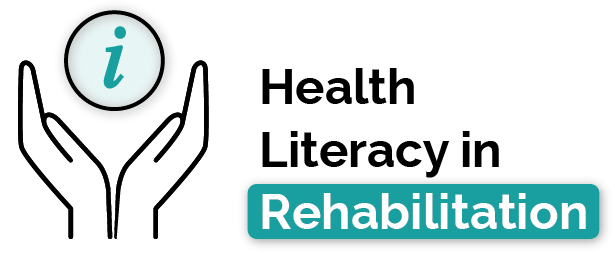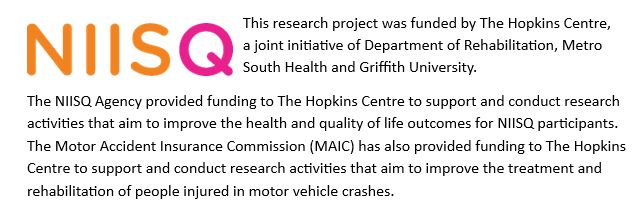SEED PROJECT - Implementing principles of health literacy into rehabilitation practice using a change champion/co-design approach: A pilot and feasibility evaluation
About the Project
Chief Investigator: Dr Delena Amsters
Project Title: Implementing principles of health literacy into rehabilitation practice using a change champion/co-design approach: A pilot and feasibility evaluation
Project Team: Dr Susan Stoikov, Melissa McElligott, Kelsey Chapman, Angel Dixon, A/Prof. Petrea Cornwell, Michelle Myburg, Sarita Schuurs, Troy Hakala, Prof. Joy Parkinson, Dr Danielle Muscat and Jessie Mitchell.

Project Summary: The Health Literacy in Rehabilitation Project will ensure that rehabilitation services enhance the health literacy of their service users, positioning them to advocate for their health and rehabilitation needs. Where a person has low levels of health literacy, access to health services occurs less frequently with the potential to negatively impact health outcomes. Current models of healthcare and disability are increasingly focused on providing autonomy and choice over decision-making for people with disability. Central to this is health literacy - the ability to find, understand, and use information to inform health-related decisions and actions. Health literacy is directly linked to people’s ability to participate in decisions about healthcare and rehabilitation along the care continuum. People with disability face many health-related challenges which require a certain level of health literacy for optimum self-management and enhanced quality of life.
The HLR Project aligns with The Hopkins Centre Evidence-Based Practice and Community Intervention research program, focused on user-engagement, co-design and research translation to support people’s expression of choice and preference. The project aims to create and evaluate a toolkit that develops the knowledge and skills of rehabilitation clinicians, to support the health literacy of service users and those who support them. This toolkit will be informed by the experiences and preferences of people with lived experience of acquired disability and meet the diversity of needs. Through developing a health literacy toolkit creation process that can be transferred across rehabilitation services, this research has the potential to build effective and innovative services with a lasting impact on the capacity of people with disabilities to advocate and access services, and ultimately improve health outcomes.

View All Researchers

